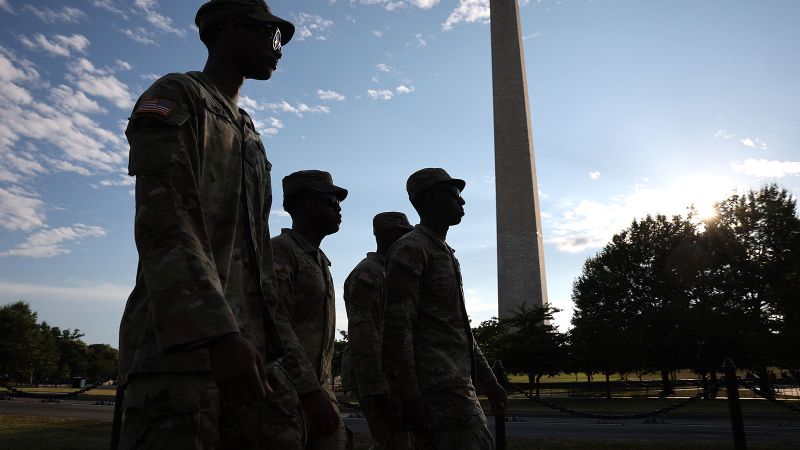DC Crackdown: Trump Gains Ground as Democrats Struggle to Counter His Tough-on-Crime Stance

President Donald Trump's assertive deployment of law enforcement in Washington, D.C., has ignited a significant political debate, exposing vulnerabilities within the Democratic party and solidifying Trump's image as a champion of law and order. The move, which many describe as a militarized crackdown on crime, is proving to be a pivotal moment, highlighting Democrats' ongoing challenges in effectively responding to Trump’s populist appeal and hardline messaging.
For years, Trump has successfully leveraged anxieties surrounding public safety and crime to galvanize his base. This latest action in D.C. appears to be a strategic maneuver, capitalizing on perceived weaknesses in the Democratic response and further exploiting existing divisions within the party. The optics are undeniably powerful: a decisive leader taking swift action to restore order, contrasting sharply with what many perceive as a hesitant and reactive Democratic approach.
The situation isn't simply about crime rates; it's about the narrative. Trump has consistently framed himself as the defender of traditional values and the protector of American citizens, while portraying Democrats as soft on crime and sympathetic to those who break the law. This narrative resonates with a significant portion of the electorate, particularly in swing states where concerns about public safety are paramount. The recent events in D.C. provide ample fodder for Trump and his allies to reinforce this message.
The Democratic party's internal struggles are undeniably contributing to their difficulties in countering Trump's rhetoric. Progressive and moderate factions within the party often clash on issues related to criminal justice reform, policing strategies, and the root causes of crime. This lack of unified messaging weakens their ability to present a cohesive and compelling alternative to Trump’s approach.
Furthermore, the Democrats' focus on addressing systemic issues, such as poverty and inequality, which they argue contribute to crime, has been overshadowed by Trump's emphasis on immediate, visible action. While acknowledging the importance of addressing these underlying factors, many voters are primarily concerned with feeling safe in their communities, and Trump's message of tough-on-crime resonates strongly with these concerns.
The consequences of this political dynamic could be far-reaching. Trump's success in exploiting Democratic divisions and shaping the narrative around law and order has already played a significant role in his past electoral victories, and this latest episode suggests that he remains a formidable force in American politics. It underscores the urgent need for Democrats to develop a more unified and persuasive strategy to address public safety concerns while also advocating for long-term solutions to the root causes of crime. Failure to do so could have serious implications for their political future.
The situation in Washington, D.C., serves as a stark reminder of the enduring power of the law-and-order message in American politics and the challenges facing Democrats as they navigate a polarized electorate. The coming months will be crucial in determining whether the party can effectively counter Trump's narrative and regain the upper hand in the debate over public safety.






